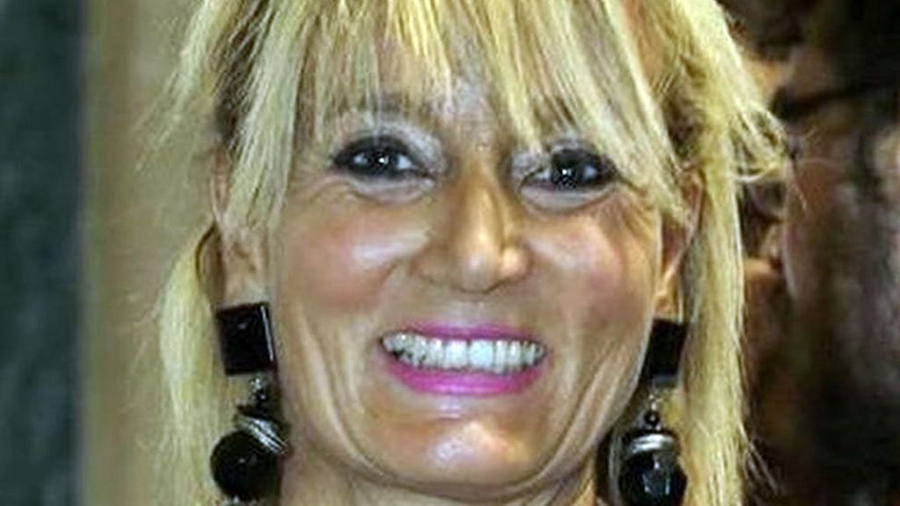European doctors thought at first that the six members of this Italian family lacked from the nerves that alert our brains when something hurts us. However, after having checked them, they realized that wasn’t the cause of their unusual low sensitivity to pain. A study told Wednesday the story of people who might help scientists discover a way to create powerful and innovative pain-killer drugs.
The members of the Marsili family have broken bones and burned themselves without having noticed it. All of them worked along with the doctors from the University College London who performed the study published in the journal Brain.
Some of them have fallen from their vehicles, while others have received intense heats that no human can stand. However, none of them took at the moment the appropriate time to concern about themselves and carefully see if everything was ok. They just reacted unsurprisingly and continued with their lives as nothing had happened.

Maria Domenica, aged 78 years old and considered the older of the six members, told the BBC that she often suffers burns because she can’t notice when she’s exposed to high temperatures. Then, she continued saying that she had broken several bones, which she didn’t correctly heal with medical assistance but let them harden by themselves.
The authors wrote that they studied the DNA of all the six of them and realized that the family’s inability to feel pain is due to a genetic mutation. However, they still need to do more research, especially if they want to renew nowaday medicine for people who are unable to relieve their pain.
Professor Anna Maria Aloisi from the University of Siena, in Italy, said her team has opened up a “whole new route to drug discovery for pain relief.”
“With more research to understand exactly how the mutation impacts pain sensitivity, and to see what other genes might be involved, we could identify novel targets for drug development,” said Proff Aloisi.
So far today, doctors are calling the family’s condition – which is a form of congenital hypoalgesia – as the Marsili syndrome. They believe that there are no other people in the world who is suffering from it.
A mutation makes the family unable to feel pain
The lead author of the research Dr. James Cox, from University College London, said that despite the fact that all the Marsili family members had all their nerves, some of them might not be “working as they should,” thus, making the people immune to pain.
The doctor is entirely committed to reaching further results. He said that his team is working hard to “gain a better understanding” of what is causing the Marsili’s nerves not to appropriately function, and to see how researchers can manipulate this situation so they can find a way to invent “new pain relief treatments.”

The experts mapped out the protein-coding genes in all of the six Marsili members and realized that there was a special mutated-gene that all of them had in common. They proceeded to experiment with mice to see if the finding could have any relation to the syndrome.
When they gathered the mice with and without the mutations in their ZFHX2 genes, they submitted them into pain and high temperatures.
Impressively, the doctors found that there was a notable difference in the resistance of the mice whose genes were mutated, comparing to those who had normal ZFHX2 genes.
Although they might be unprotected in certain situations, it’s a “better life”
Congenital hypoalgesia is a condition that affects the pain sensibility of people since birth.
It occurs when the nerves that perceive the pain are damaged or missing. Thus, also affecting the possibility of the brain to receive the messages.
Not being able to feel pain makes the person unaware of some dangerous situations, like cancer and wildfires.
Referring to the Marsili family, some of the members have reported feeling occasional headaches and lower-back pain. On the other hand, some have never realized at the moment when they cut their tongues after bitting it.
The mothers also said that they felt uncomfortable when they gave birth their children.

Letizia Marsili, a 52-year-old mother, and Maria Domenica’s daughter said she was only a child when she realized for the first time that she was different from others. She wasn’t used to complaint about physical feelings, but for seeing other children cry for little things.
Letizia, who only takes a “few seconds” to feel the “perception of pain,” said her sister, two sons, and niece – aged 50, 24, 21 and 16 respectively – suffer from the same syndrome that makes them have a “better life” than others.
The syndrome is very complex in the family. Some of them don’t even sweat, while others perceive so well the odors in the air that make them want to vomit or faint.
Fortunately, their intelligence and ability to move are not affected.
Source: Brain
